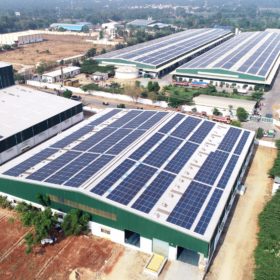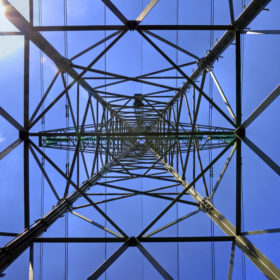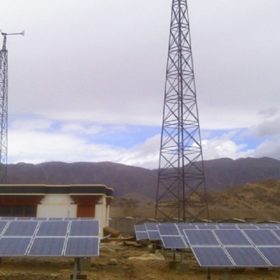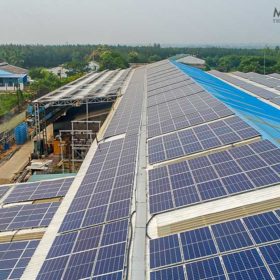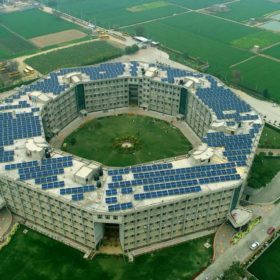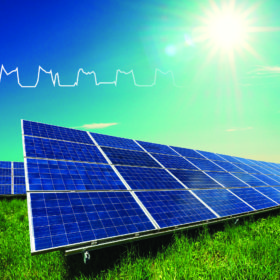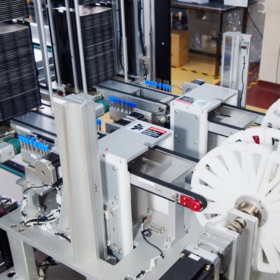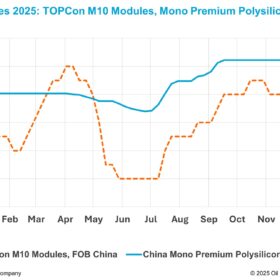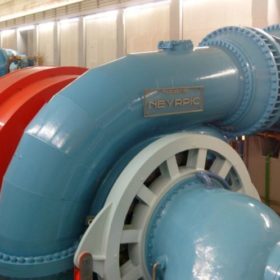NTPC arm tenders 500 KW grid-connected rooftop solar
Kanti Bijlee Utpadan Nigam Limited (KBUNL), a wholly owned subsidiary of NTPC Limited, has invited bids for setting up of 500 KW of rooftop solar PV capacity on various buildings of its plant for Muzaffarpur Thermal Power Project in Bihar. The project will be awarded based on domestic competitive bidding. The deadline for bid submission is May 8.
India’s solar sector will outperform globally despite near-term challenges, says Fitch Solutions
With Narendra Modi being tipped to triumph again in the current Indian elections, Indian solar capacity is expected to grow robustly, at 15.3% per year, on the back of continued strong government support.
Orb Energy begins third phase of one of India’s largest multi-site PV rooftops
The solar manufacturer is installing three rooftop systems in Karnataka and Tamil Nadu for polypropylene woven fabric maker Klene Paks. The units will have a cumulative capacity of 7.63 MW.
China sheds light on transition to subsidy-free solar
An emphasis on grid-parity PV has been hammered out in the latest policy document to emerge after several weeks of haggling in Beijing. Chinese analyst AECEA says the success of the subsidy-free effort will hinge on the ability of power companies to transmit and guarantee consumption of the power generated by new projects.
Avaada raises Rs1000 crore to fund its 2.4 GW solar projects
Avaada Energy has raised the funds from the Asian Development Bank and European development institutions. The PV developer will use the amount to finance 2.4 GW of the 5 GW of solar capacity it hopes to secure over the next two years.
Indian solar market leaders for 2018
ACME Solar installed the largest utility-scale solar capacity in 2018. It also had the largest project pipeline at the end of 2018, closely followed by SB Energy and Azure Power. While modules from China’s ZnShine were used the most, the imposition of the safeguard duty helped domestic manufacturers to capture a larger share of the market compared to 2017, according to clean energy consulting firm Mercom Communications.
PTC Financial joins USICEF initiative to fund distributed solar projects
Infrastructure finance provider PTC India Financial Services (PFS) has partnered with U.S.-India Clean Energy Finance (USICEF) initiative to fund the most promising, investment-ready distributed solar projects in India.
MYSUN expands in 7 states to push solar for SMEs
The rooftop solar solutions provider has bagged 11 MW of multiple new orders in Maharashtra and Rajasthan in last one month. These projects are getting executed in Pune, Ratnagiri, Baramati, Washim, Nanded and other cities in Maharashtra and Rajasthan.
Akal University’s 1.2 MW solar project is Punjab’s largest for rural institutions
This 1.2 MWp project would generate more than 80% of power requirements of the Akal University and 13 Akal Academies. It has been built at a total cost of Rs 5.2 crore, out of which the Ministry of New and Renewable Energy has provided a total subsidy of around Rs 1.7 crore.
Global solar PV will reclaim double-digit growth in 2019, says IHS Markit
This revived growth comes mainly from markets outside of China, which are forecast to rise by 43% in 2019. While China will grow marginally by 2%, Europe will add over 7 GW with utility-scale installations in Spain alone contributing 60% of the growth in the region. The USA will overtake India to once again become the second-largest PV market.


